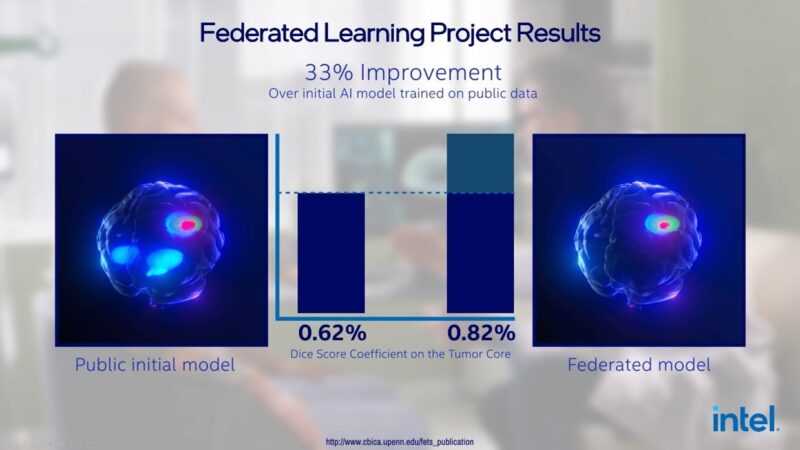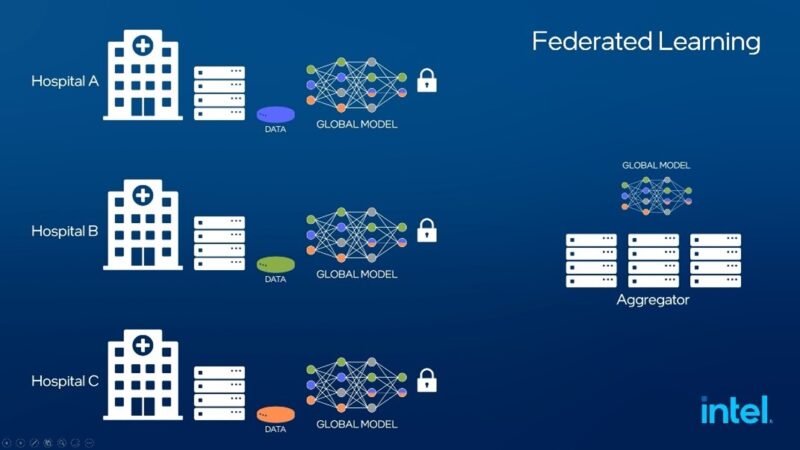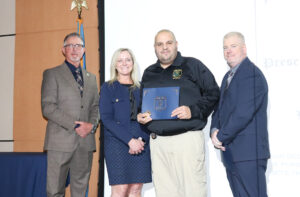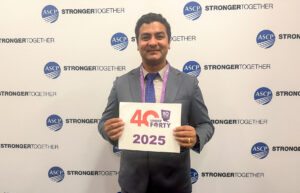Gaurav Shukla, M.D., Ph.D., radiation oncologist and research clinician at ChristianaCare’s Helen F. Graham Cancer Center & Research Institute, co-authored the largest-to-date and breakthrough global machine learning study that demonstrated the ability to improve the detection of malignant brain tumors by 33%. Study results were published in Nature Communications in December.
To schedule an appointment at the Helen F. Graham Cancer Center & Research Institute, call 302-623-4500.
The project, led by the Perelman School of Medicine at the University of Pennsylvania and Intel Labs, securely aggregated data from brain scans of over 6,300 glioblastoma patients from 71 sites around the world.
The study shows that data sets from multiple institutions can be successfully combined to generate better models for tumor delineation, which may help raise the level of care for patients being treated far from the biggest cancer centers in the world,” said Shukla.
“While the immediate application to have more accurate and reliable detection of brain tumors is certainly exciting, the bigger impact will be the use of this sophisticated AI technique called ‘federated learning’ for all kinds of cancer applications while protecting patient privacy.”

Researchers studying rare conditions, like glioblastoma, an aggressive type of brain tumor, often have patient populations limited to their own institution or geographical location, according to a press release by the University of Pennsylvania that outlined study results.
Due to privacy protection legislation, such as the Health Insurance Portability and Accountability Act of 1996 (HIPAA) in the United States, and General Data Protection Regulation (GDPR) in Europe, data-sharing collaborations across institutions without compromising patient privacy data is a major obstacle for researchers.
Benefits of federated learning
A newer machine learning approach called federated learning offers a solution to these hurdles by bringing the machine learning algorithm to the data instead of following the current paradigm of centralizing data to the algorithms.
Federated learning an approach first implemented by Google for keyboards’ autocorrect functionality trains a machine learning algorithm across multiple decentralized devices or servers (in this case, institutions) holding local data samples, without actually exchanging them.
This allows clinicians at institutions in different countries to collaborate on research without sharing private patient data.

In this study, radiologists used a new state-of-the-art AI software platform called Federated Tumor Segmentation (FeTS) to determine the boundary of a tumor and improve the identification of the “operable region” of tumors or the “tumor core.” They annotated their data with the software platform.
The research study demonstrated the effectiveness of using federated learning and the potential benefits the health care industry can realize when multisite data silos are unlocked. Benefits include early detection of disease, which can improve quality of life or increase a patient’s lifespan.
Shukla believes that research using federated learning can be far-reaching in medicine, applying not only to cancers but also benign conditions. He also anticipates more research will continue to demonstrate that federated learning can abide by security and privacy protocols around the world and hopes other ChristianaCare researchers can become involved in future research projects based on this study.



